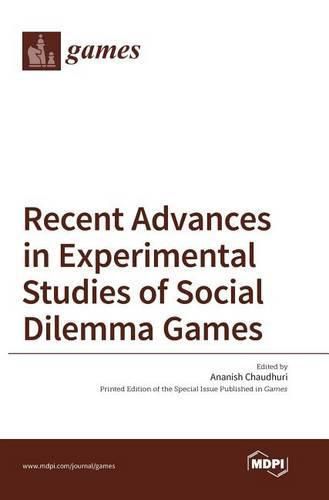Readings Newsletter
Become a Readings Member to make your shopping experience even easier.
Sign in or sign up for free!
You’re not far away from qualifying for FREE standard shipping within Australia
You’ve qualified for FREE standard shipping within Australia
The cart is loading…






This title is printed to order. This book may have been self-published. If so, we cannot guarantee the quality of the content. In the main most books will have gone through the editing process however some may not. We therefore suggest that you be aware of this before ordering this book. If in doubt check either the author or publisher’s details as we are unable to accept any returns unless they are faulty. Please contact us if you have any questions.
The articles in this volume collectively represent the latest advances in how
people think of social dilemma problems, how we may be able to enhance cooperation
and reduce free-riding in such problems and how we can extend the lessons learned
to a host of other similar issues facing us. We have learned, for instance, that a take
frame does not necessarily lead to lower cooperation compared to a give frame
but combining a take frame with fine-grained individual level feedback leads to
more extreme behavior in terms of both greater cooperation and greater free-riding.
We have also learned that a strategy based on payoff sampling may provide a more
parsimonious and less parameter dependent way of modelling behavior in common
pool resource extraction games. We find that people behave differently in social
dilemmas when making decisions of their own as opposed to deciding on behalf of
someone else.
$9.00 standard shipping within Australia
FREE standard shipping within Australia for orders over $100.00
Express & International shipping calculated at checkout
This title is printed to order. This book may have been self-published. If so, we cannot guarantee the quality of the content. In the main most books will have gone through the editing process however some may not. We therefore suggest that you be aware of this before ordering this book. If in doubt check either the author or publisher’s details as we are unable to accept any returns unless they are faulty. Please contact us if you have any questions.
The articles in this volume collectively represent the latest advances in how
people think of social dilemma problems, how we may be able to enhance cooperation
and reduce free-riding in such problems and how we can extend the lessons learned
to a host of other similar issues facing us. We have learned, for instance, that a take
frame does not necessarily lead to lower cooperation compared to a give frame
but combining a take frame with fine-grained individual level feedback leads to
more extreme behavior in terms of both greater cooperation and greater free-riding.
We have also learned that a strategy based on payoff sampling may provide a more
parsimonious and less parameter dependent way of modelling behavior in common
pool resource extraction games. We find that people behave differently in social
dilemmas when making decisions of their own as opposed to deciding on behalf of
someone else.